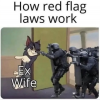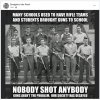2nd Amendment thread
- Thread starter bigredfish
- Start date
You are using an out of date browser. It may not display this or other websites correctly.
You should upgrade or use an alternative browser.
You should upgrade or use an alternative browser.
Now THIS is how such an event should be handled, IMO. Kudos to LEO, disheartened by the outcome but the right person suffered the consequences of his actions. And before anyone gets any wrong ideas, this would still be my opinion if he was white, drove a Ford and cheered for the Crimson Tide.
Gunman killed in Duncanville summer camp shootout identified
Gunman killed in Duncanville summer camp shootout identified
I really believe Social Media plays a Big part in the younger shooter's minds. Not sure if they are trying to one up one another or think they will be more popular or looking for (group) acceptance/attention, I don't know, but I believe the reason we are seeing more and more of these Mass Shootings is the younger generation is glued to their phones which is a huge propaganda device. A few generations ago, news was in a newspaper or TV, as kids, most of us never watched or cared about news stuff. Now it is blasted toward anyone on Social Media...Bad News builds Anger...
I understand we need to look at the mental state of these shooters, but my question is what is pushing them, previous generations had they same problems in life, isolation, being teased (bullying), etc. I am sure similar thoughts too, revenge, anger, hate, but why did they not act on them, or on a huge scale as they are doing today?
Yes, several other factors are in play here too, the older generations valued/respected life more and was less desensitized to violence.
I understand we need to look at the mental state of these shooters, but my question is what is pushing them, previous generations had they same problems in life, isolation, being teased (bullying), etc. I am sure similar thoughts too, revenge, anger, hate, but why did they not act on them, or on a huge scale as they are doing today?
Yes, several other factors are in play here too, the older generations valued/respected life more and was less desensitized to violence.
looney2ns
IPCT Contributor
Wouldn't see this on msm.

 wchstv.com
wchstv.com

Police: Woman with pistol killed man who shot at crowd of people in Charleston
UPDATED: 8:30 a. m. , 5/26/22. Police said a woman who was lawfully carrying a pistol shot and killed a man who began shooting at a crowd of people Wednesday night in Charleston. Dennis Butler was killed after allegedly shooting at dozens of people attending a graduation party Wednesday near the...
looney2ns
IPCT Contributor
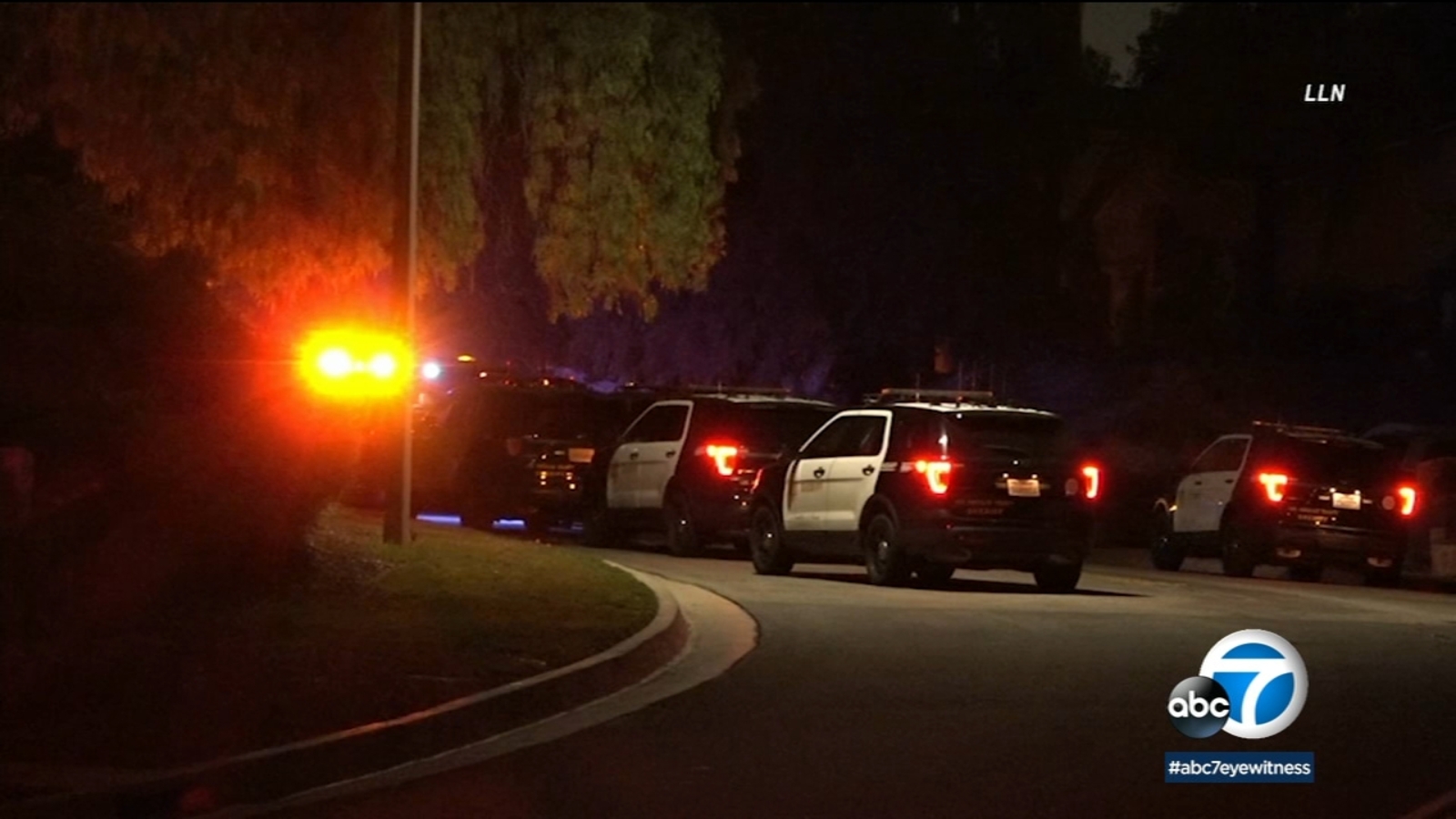
Homeowner shoots, kills suspect during home burglary in Walnut
A homeowner took matters into his own hands when someone broke into his house overnight in Walnut.
looney2ns
IPCT Contributor

‘I had to do what I had to do:’ Florida woman, 69, shoots, kills intruder
A man was shot to death while burglarizing a home in Orange County, deputies say.
looney2ns
IPCT Contributor

Canton homeowner shoots, kills armed intruder
A Saturday morning shooting left one person dead after a Canton homeowner claims a man unlawfully forced entry into his home.
looney2ns
IPCT Contributor
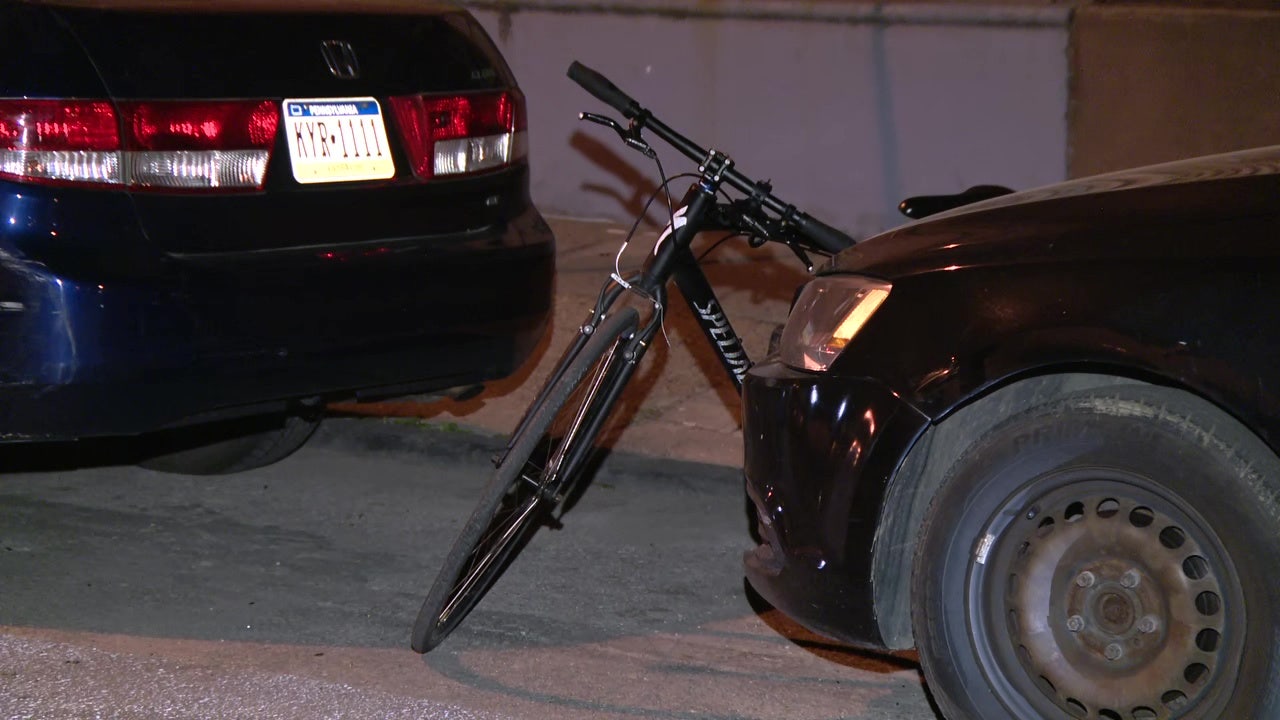
Armed robber on a bike killed by man he was trying to rob in South Philadelphia, police say
An armed robber on a bike is dead after police say he was shot in the head by the man he was trying to rob.

Armed robber on a bike killed by man he was trying to rob in South Philadelphia, police say
An armed robber on a bike is dead after police say he was shot in the head by the man he was trying to rob.www.fox29.com
Thanks @looney2ns , I’ve had a tough couple of days and really needed to hear an uplifting story with a happy ending,
Ssayer
BIT Beta Team
sebastiantombs
Known around here
Gotta have gun control to stop this, but then they let the shooter right back out again, FUBAR isn't even close -
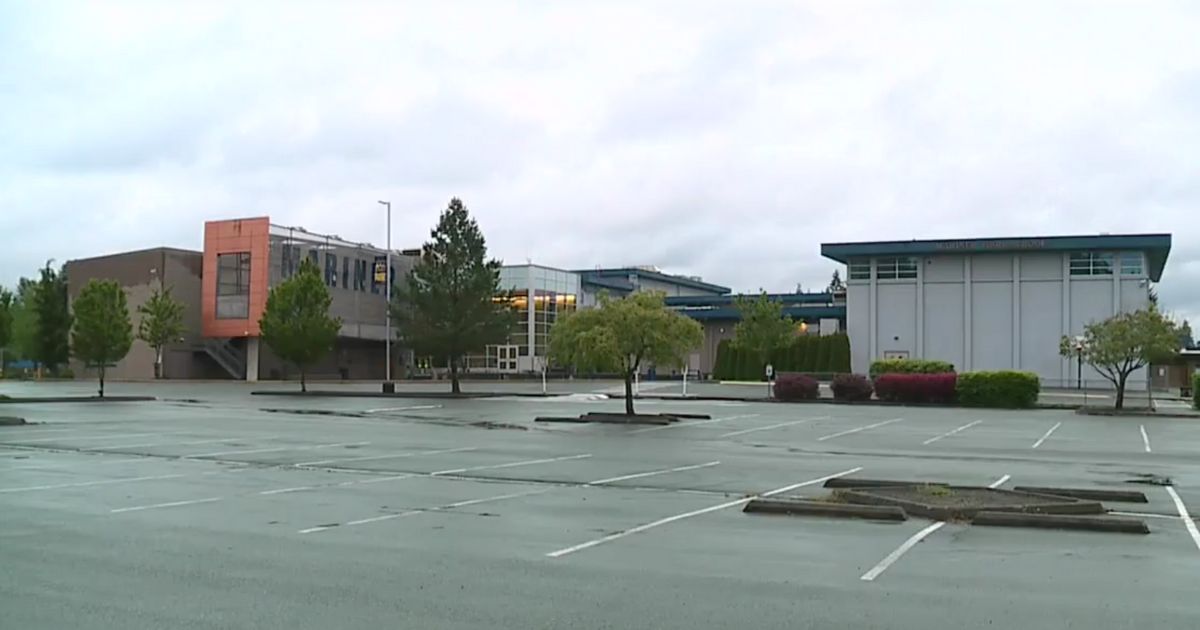
 www.westernjournal.com
www.westernjournal.com

Teen Who Allegedly Opened Fire at High School Released on Bail Less Than 24 Hours After Incident
A teen fired shots in a Washington high school parking lot, but was released on $2,500 bail less than 24 hours after being arrested.
 www.westernjournal.com
www.westernjournal.com
sebastiantombs
Known around here
Another "mass shooting". This time a pot luck dinner at a church outside of Birmingham. Multiple people shot and the shooter is in custody.
Wait...didn't Joy Behar say they don't have guns...

 www.yahoo.com
www.yahoo.com
If I were on Twitter, I would post to her feed EVERY news article where a minority used a gun....

9-year-old girl ‘executed’ by mom’s ex-boyfriend during argument, Texas police say
The 9-year-old’s mom says they were watching a movie together before the man arrived unannounced.
If I were on Twitter, I would post to her feed EVERY news article where a minority used a gun....
sebastiantombs
Known around here
Gargoile
Getting comfortable
Then what about ChicagoWait...didn't Joy Behar say they don't have guns...

9-year-old girl ‘executed’ by mom’s ex-boyfriend during argument, Texas police say
The 9-year-old’s mom says they were watching a movie together before the man arrived unannounced.www.yahoo.com
If I were on Twitter, I would post to her feed EVERY news article where a minority used a gun....
mat200
IPCT Contributor
- Jan 17, 2017
- 16,616
- 27,929
Joy Behar is either an idiot or a purposeful liar ..

MLK and His Guns
Most people think Martin Luther King would be the last person to own a gun. Yet in the mid-1950s, as the civil rights movement heated up, King kept firearms for self-protection.
Jan 17, 2011, 11:25 PM EST | Updated May 25, 2011
This post was published on the now-closed HuffPost Contributor platform. Contributors control their own work and posted freely to our site. If you need to flag this entry as abusive, send us an email.
One issue on everyone's mind this Martin Luther King Jr. day was gun control. King's calls for resolving our differences through peaceful nonviolence are especially poignant after Jared Loughner gunned down six people and wounded several others in Tucson. Amid the clamor for new gun laws, its appropriate to remember King's complicated history with guns.
Most people think King would be the last person to own a gun. Yet in the mid-1950s, as the civil rights movement heated up, King kept firearms for self-protection. In fact, he even applied for a permit to carry a concealed weapon.
A recipient of constant death threats, King had armed supporters take turns guarding his home and family. He had good reason to fear that the Klan in Alabama was targeting him for assassination.
William Worthy, a journalist who covered the Southern Christian Leadership Conference, reported that once, during a visit to King's parsonage, he went to sit down on an armchair in the living room and, to his surprise, almost sat on a loaded gun. Glenn Smiley, an adviser to King, described King's home as "an arsenal."
As I found researching my new book, Gunfight, in 1956, after King's house was bombed, King applied for a concealed carry permit in Alabama. The local police had discretion to determine who was a suitable person to carry firearms. King, a clergyman whose life was threatened daily, surely met the requirements of the law, but he was rejected nevertheless. At the time, the police used any wiggle room in the law to discriminate against African Americans.
Ironically, the concealed carry permit law in Alabama was promoted by the National Rifle Association thirty years earlier. Today, the gun rights hardliners fight to eliminate permits for concealed carry, as Arizona has done.
Eventually, King gave up any hope of armed self-defense and embraced nonviolence more completely. Others in the civil rights movement, however, embraced the gun.
One of the most indelible images of the 1960s is a photograph from Life magazine of Malcolm X looking out a window with a long M-1 carbine in his hands, the rifle pointed up to the sky. For blacks unhappy with the progress achieved by King's marches, the gun became a symbol of the "by any means necessary" philosophy.
The Black Panthers took Malcolm X's approach to the extreme, openly carrying guns as they patrolled for police abuses on the streets of Oakland. They even made guns part of their official uniform, along with the black beret and leather jacket. Every member learned about Marxism and firearms safety.
California passed a law to disarm the Panthers and then Congress, after King was assassinated by James Early Ray, passed the Gun Control Act of 1968 -- the first major federal gun control since the 1930s. These laws fueled the rise of the modern gun rights movement, which self-consciously borrowed tactics from the civil rights movement.
One lesson the gun advocates took was from the early King and his more aggressive followers: If the police can't (or won't) to protect you, a gun may be your last line of defense. Inspired by that idea, the gun lobby has grown so strong that even after the Tucson mass murder there is almost no likelihood of new gun laws being passed.
Whether a broader acceptance of the King's later pacifism would have made us safer than choosing guns, we will never know.
Adam Winkler, Contributor
Professor of Law, UCLA


MLK and His Guns
Most people think Martin Luther King would be the last person to own a gun. Yet in the mid-1950s, as the civil rights movement heated up, King kept firearms for self-protection.
Jan 17, 2011, 11:25 PM EST | Updated May 25, 2011
This post was published on the now-closed HuffPost Contributor platform. Contributors control their own work and posted freely to our site. If you need to flag this entry as abusive, send us an email.
One issue on everyone's mind this Martin Luther King Jr. day was gun control. King's calls for resolving our differences through peaceful nonviolence are especially poignant after Jared Loughner gunned down six people and wounded several others in Tucson. Amid the clamor for new gun laws, its appropriate to remember King's complicated history with guns.
Most people think King would be the last person to own a gun. Yet in the mid-1950s, as the civil rights movement heated up, King kept firearms for self-protection. In fact, he even applied for a permit to carry a concealed weapon.
A recipient of constant death threats, King had armed supporters take turns guarding his home and family. He had good reason to fear that the Klan in Alabama was targeting him for assassination.
William Worthy, a journalist who covered the Southern Christian Leadership Conference, reported that once, during a visit to King's parsonage, he went to sit down on an armchair in the living room and, to his surprise, almost sat on a loaded gun. Glenn Smiley, an adviser to King, described King's home as "an arsenal."
As I found researching my new book, Gunfight, in 1956, after King's house was bombed, King applied for a concealed carry permit in Alabama. The local police had discretion to determine who was a suitable person to carry firearms. King, a clergyman whose life was threatened daily, surely met the requirements of the law, but he was rejected nevertheless. At the time, the police used any wiggle room in the law to discriminate against African Americans.
Ironically, the concealed carry permit law in Alabama was promoted by the National Rifle Association thirty years earlier. Today, the gun rights hardliners fight to eliminate permits for concealed carry, as Arizona has done.
Eventually, King gave up any hope of armed self-defense and embraced nonviolence more completely. Others in the civil rights movement, however, embraced the gun.
One of the most indelible images of the 1960s is a photograph from Life magazine of Malcolm X looking out a window with a long M-1 carbine in his hands, the rifle pointed up to the sky. For blacks unhappy with the progress achieved by King's marches, the gun became a symbol of the "by any means necessary" philosophy.
The Black Panthers took Malcolm X's approach to the extreme, openly carrying guns as they patrolled for police abuses on the streets of Oakland. They even made guns part of their official uniform, along with the black beret and leather jacket. Every member learned about Marxism and firearms safety.
California passed a law to disarm the Panthers and then Congress, after King was assassinated by James Early Ray, passed the Gun Control Act of 1968 -- the first major federal gun control since the 1930s. These laws fueled the rise of the modern gun rights movement, which self-consciously borrowed tactics from the civil rights movement.
One lesson the gun advocates took was from the early King and his more aggressive followers: If the police can't (or won't) to protect you, a gun may be your last line of defense. Inspired by that idea, the gun lobby has grown so strong that even after the Tucson mass murder there is almost no likelihood of new gun laws being passed.
Whether a broader acceptance of the King's later pacifism would have made us safer than choosing guns, we will never know.
Adam Winkler, Contributor
Professor of Law, UCLA





